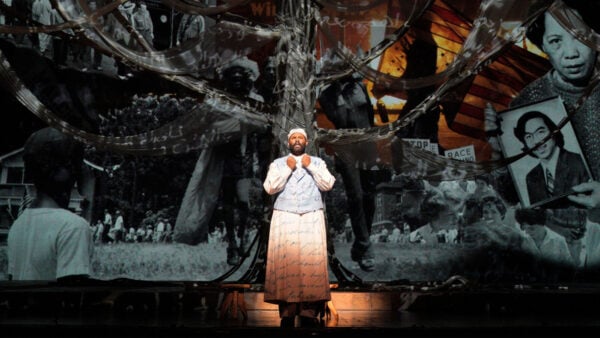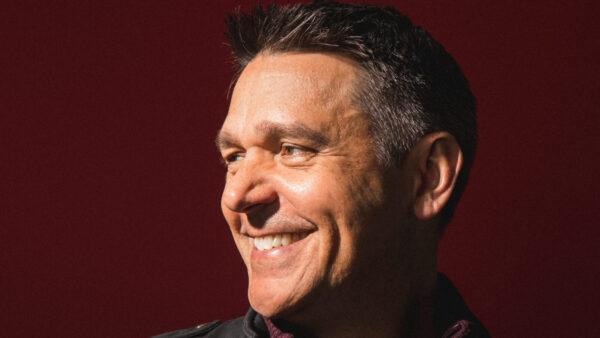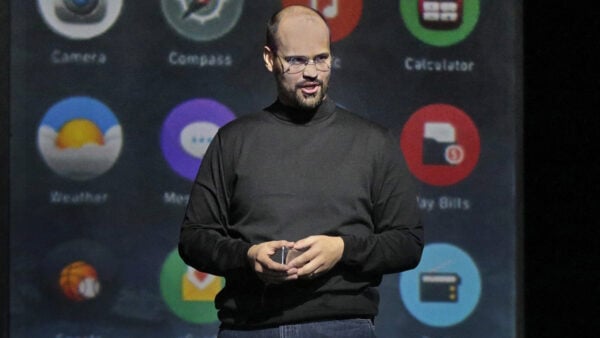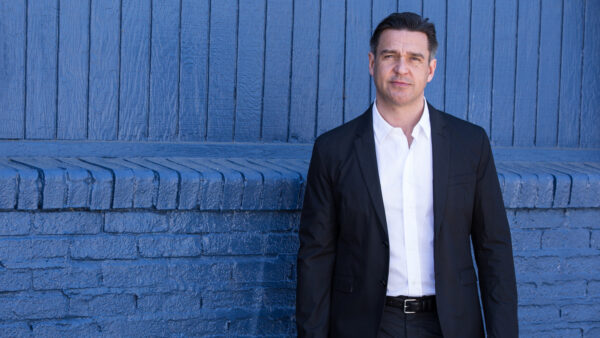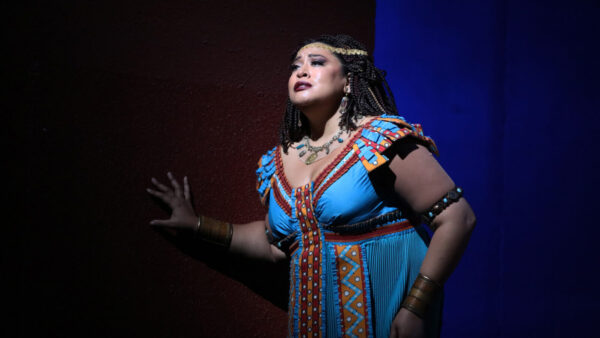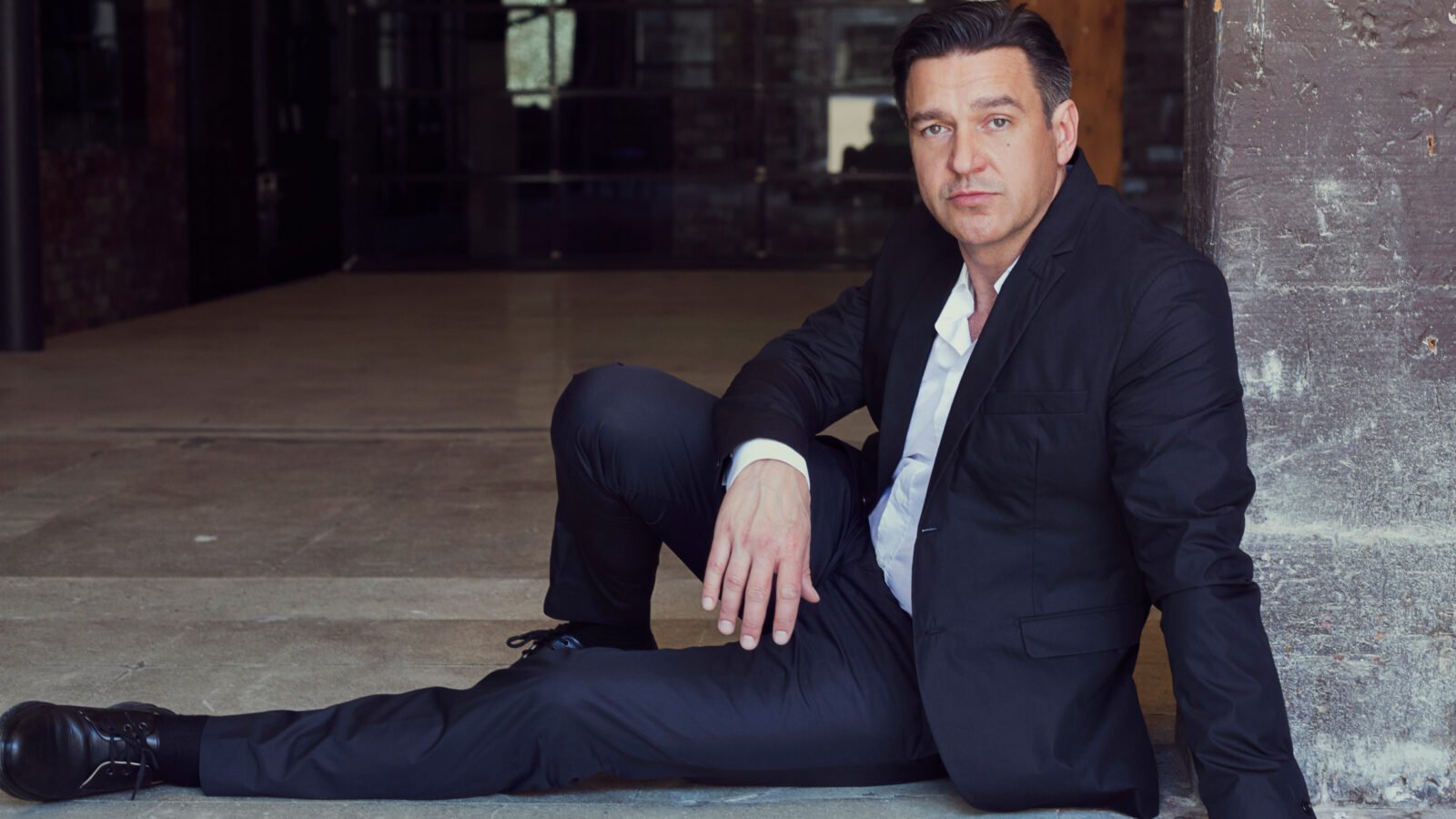
Nathan Gunn (Photo: Sandra Powers)
Renowned baritone Nathan Gunn has reinterpreted such classic roles as Billy Budd, Figaro, and Don Giovanni, garnering the Grammy Award for Best Opera Recording (Billy Budd) and the Metropolitan Opera’s first-ever Beverly Sills Award, among many others. He’s also an ambassador for American music and opera — both in his concertizing and as a professor of voice at his alma mater, the School of Music at the University of Illinois Urbana-Champaign.
Recently, Gunn returned to the Chicago area to revisit another repertory and role entirely, appearing as Emile de Becque in New Philharmonic’s Broadway in Concert: Rodgers & Hammerstein’s “South Pacific”. Gunn sat down for an interview with WFMT music director Oliver Camacho.
Oliver Camacho: There are so many facets of your career – your work in opera, branching out into musical theater, teaching. But I’d like to focus on an aspect that has been part of your brand since the start: your love of singing in English, and especially American art song.
Nathan Gunn: My teacher William Miller…sang on the Carnation Breakfast Hour, but he also sang a lot of new work and in oratorios and operas. So when I started learning how to sing, I was always encouraged to sing in English and sing American music, not just the stuff coming out of Europe in different languages.
Camacho: Can you talk about how you achieved simplicity and a natural sound in your voice, especially when you sing in English? How do you approach teaching this to your students?
Gunn: Like any athlete, our bodies want to function in accordance with nature. What I teach my students is to let the big muscles deal with the sustaining of sound, which are the ones below your larynx, right below your vocal cords. And I let the mouth – the “articulators” – work independently from that. So if you’re doing it right, you can really imitate just about any language and any sound you need to, if those articulators – your tongue and the muscles in your throat and mouth – aren’t getting in the way. It can sound complicated and harder than it is. But once we singers do it correctly, we think, "Oh, that’s not so unfamiliar. That’s what my body wants to do."
Camacho: I want to get back to your championing of American composers. These collaborations require a high level of musicianship and an intellectual approach, especially when the text is very complicated. Nevertheless, you always find a way to deploy your voice with understandable, American English.
Gunn: My wife [pianist Julie Jordan Gunn] tells people that if you have any questions about what a poem might mean, ask Nathan – he’s kind of a savant about the meaning of metaphors. I don’t know if I am or not. But poetry and text have always been the primary reasons why I’m drawn to a song. When you add music, the words are amplified.
The first time you read Hamlet, for example, you think, “Oh, wow. I thought that, but I never knew how to express it.” I feel that is in essence what music does. My job as a singer, if I’m doing my job correctly, is no different than what a curator does with a beautiful work of art. If we can perform in a way that we’ve left our egos out so that you can just see the art, then the audience gets something meaningful out of it. But you can’t do that if you can’t understand the words – then it’s sort of pointless.
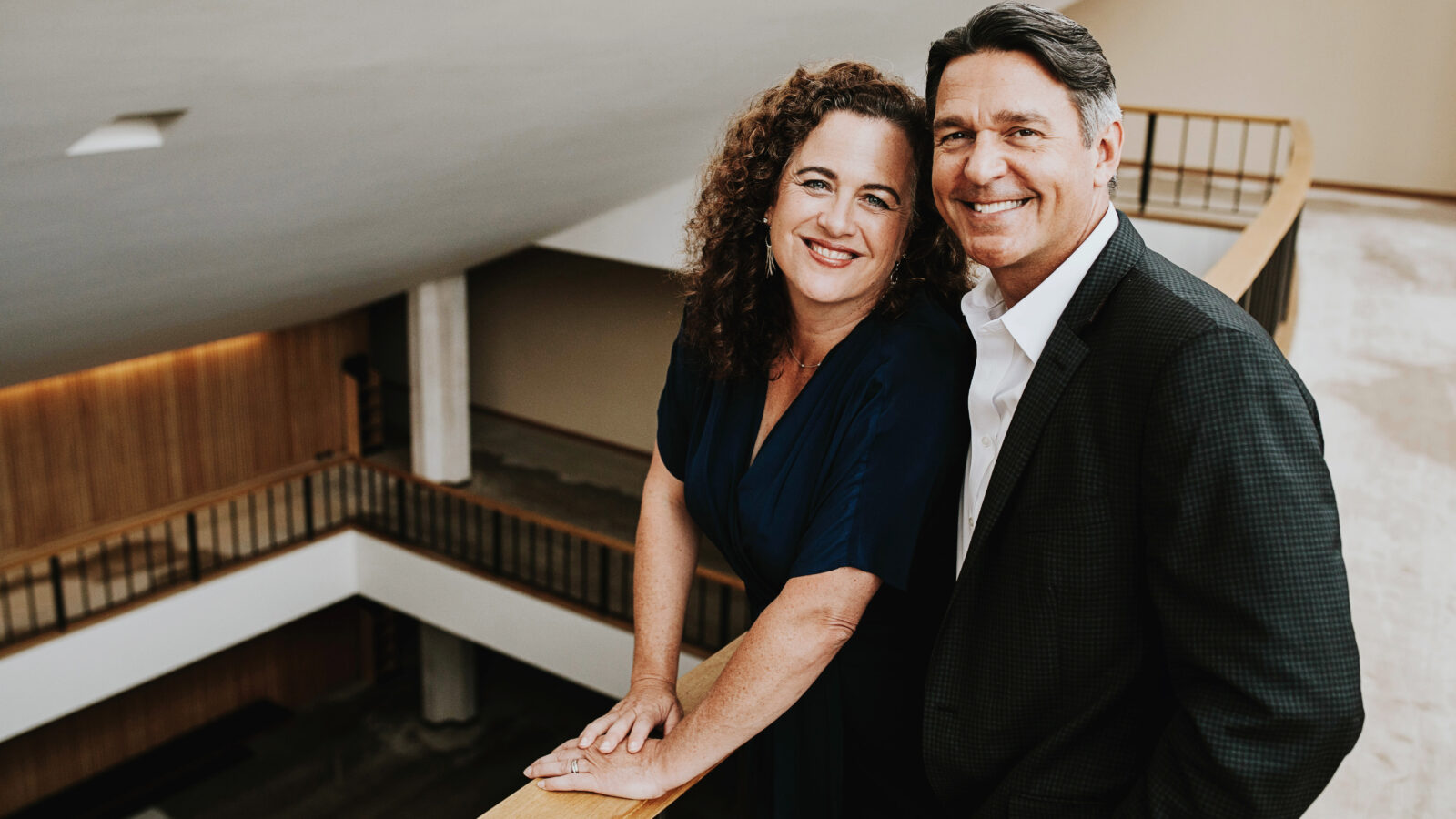
Julie Jordan Gunn and Nathan Gunn (Photo: Anna Longworth)
Camacho: Voice majors spend a lot of time just figuring out how to use their voices, pronunciation of other languages, how to be on stage. I’m heartened that a big opera star like you is out there preparing the next generation to be more complete artists.
Gunn: That’s really why I do it. Julie and I were in Nashville recently doing a master class. Those can be tough because you get a very limited amount of time with each person. You try to at least point him or her in a direction that moves them along on their journey in a positive way. At the end, one of the students asked, “Why are you a singer? Why do you stand up in front of people and put yourself in that position?” I hadn’t really been asked that in a serious way. You can sing without an audience and really enjoy yourself. But I think I sing for audiences because it’s something that can be really scary, and you can say that at least once in your life that you were not afraid – that you were absolutely present and delivered it with honesty and without any kind of barrier. [Music] is not a living thing until it goes into the ears of people and changes their lives, or moves them in some way. An individual and communal experience that can only happen live, right?
This interview has been edited for length and clarity.


